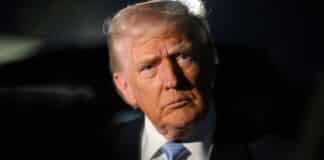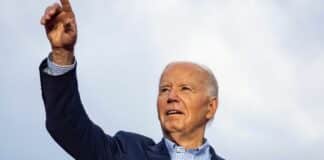Former New York Governor and mayoral candidate Andrew Cuomo (D) weighed in strongly after Donald Trump endorsed him in the New York City race, framing their combined opposition to fellow Democrat Zohran Mamdani as a coordinated effort to stop what they call a dangerous socialist takeover of the city. Cuomo explained that while both he and Trump see Mamdani as “an existential threat,” Trump goes even further—labeling Mamdani a “Communist.”
“The President does not support me, the President opposes Zohran Mamdani,” Cuomo declared. “He believes Zohran Mamdani is a Communist, he believes he’s an existential threat. I believe he’s a Socialist, and an existential threat. And not a dress‑up Socialist, right.” Cuomo sought to highlight Mamdani’s links to the Democratic Socialists of America, pointing to their calls for abolishing jails, eliminating private ownership of real estate, and decriminalizing prostitution—“frightening stuff,” he said.
Supporting the narrative, Trump urged New York City voters to back Cuomo over Mamdani, warning that the city “would be a Complete and Total Economic and Social Disaster” under Mamdani’s leadership. Trump emphasized that voting for Republican candidate Curtis Sliwa would effectively be a vote for Mamdani, who plans to bolster the city’s sanctuary‑city policies and expand government‑run grocery stores. Mamdani has also publicly stated he would reduce police involvement in non‑violent calls—an approach that has drawn sharp criticism.
Polling data supports mounting concern among voters. A Quinnipiac University poll of 911 likely NYC voters found Mamdani at 43%, Cuomo at 33%, and Sliwa at 14%. A subsequent AtlasIntel survey of 2,404 voters showed Mamdani with 43.9% support, Cuomo at 39.4%, and Sliwa at 15.5%. In a hypothetical two‑way matchup between Mamdani and Cuomo, Cuomo edged out Mamdani 49.7% to 44.1%.
With Trump and Cuomo aligned in their opposition to Mamdani, the stage is set for a fierce fight over the city’s future—one framed as a clash between socialist change and moderate continuity.





